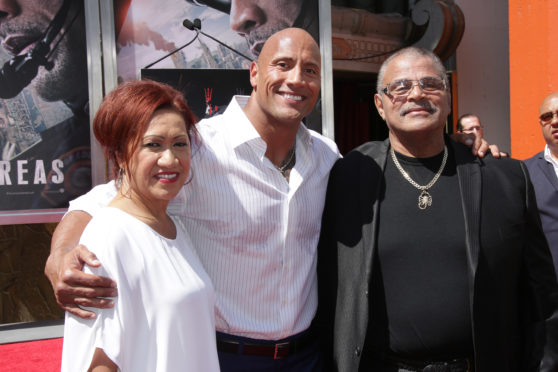As one of professional wrestling’s first black superstars, Rocky Johnson broke down barriers across America as he slammed his way to victory in the ring.
The grappling legend, who has died at the age of 75, later became better known as the father of The Rock – who followed his footsteps into the squared circle before conquering Hollywood.
Johnson was born Wayde Douglas Bowles in 1944, and began his wrestling career in the mid-1960s.
The former boxer spent years participating in bouts for the National Wrestling Alliance, where he found fame under the moniker “Soul Man”, and met his second wife through after being trained by her father.
Johnson was signed by the World Wrestling Federation, now known as WWE, in the 1980s.
He formed a tag team known as “Soul Patrol” with partner Tony Atlas, which became one of the most popular teams of the era.
Johnson and Atlas became the first black world tag team champions in WWE history when they defeated the Wild Samoans in 1983.
The star retired in the early 1990s, but forged a lasting legacy in the industry when he helped train his son and introduced him to officials at WWE.
In the early years of his career, The Rock went by the name of Rocky Maivia as a nod to both his dad and maternal grandfather.
Johnson memorably came to his son’s aid after a match at Wrestlemania in 1997, when he helped the rookie vanquish villainous Iron Sheik and his protege The Sultan.
The trailblazer was inducted into the WWE’s Hall of Fame by his son in 2008.
English wrestling legend William Regal took to social media to express his condolences.
He wrote: “I’m really sorry to hear of the passing of Rocky Johnson.
“We always had lovely chats. My deepest condolences to all of his family.”
WWE executive Paul Levesque, better known by his ring name of Triple H, added: “A loss for every fan of WWE, Rocky Johnson was a barrier-breaking performer.
“Our thoughts are with his family at this time.”
WWE chairman Vince McMahon said he was “deeply saddened” by the loss of the “incredible talent who forged an indelible legacy”.
